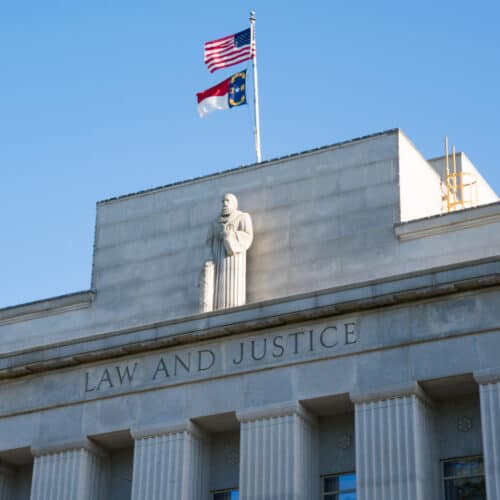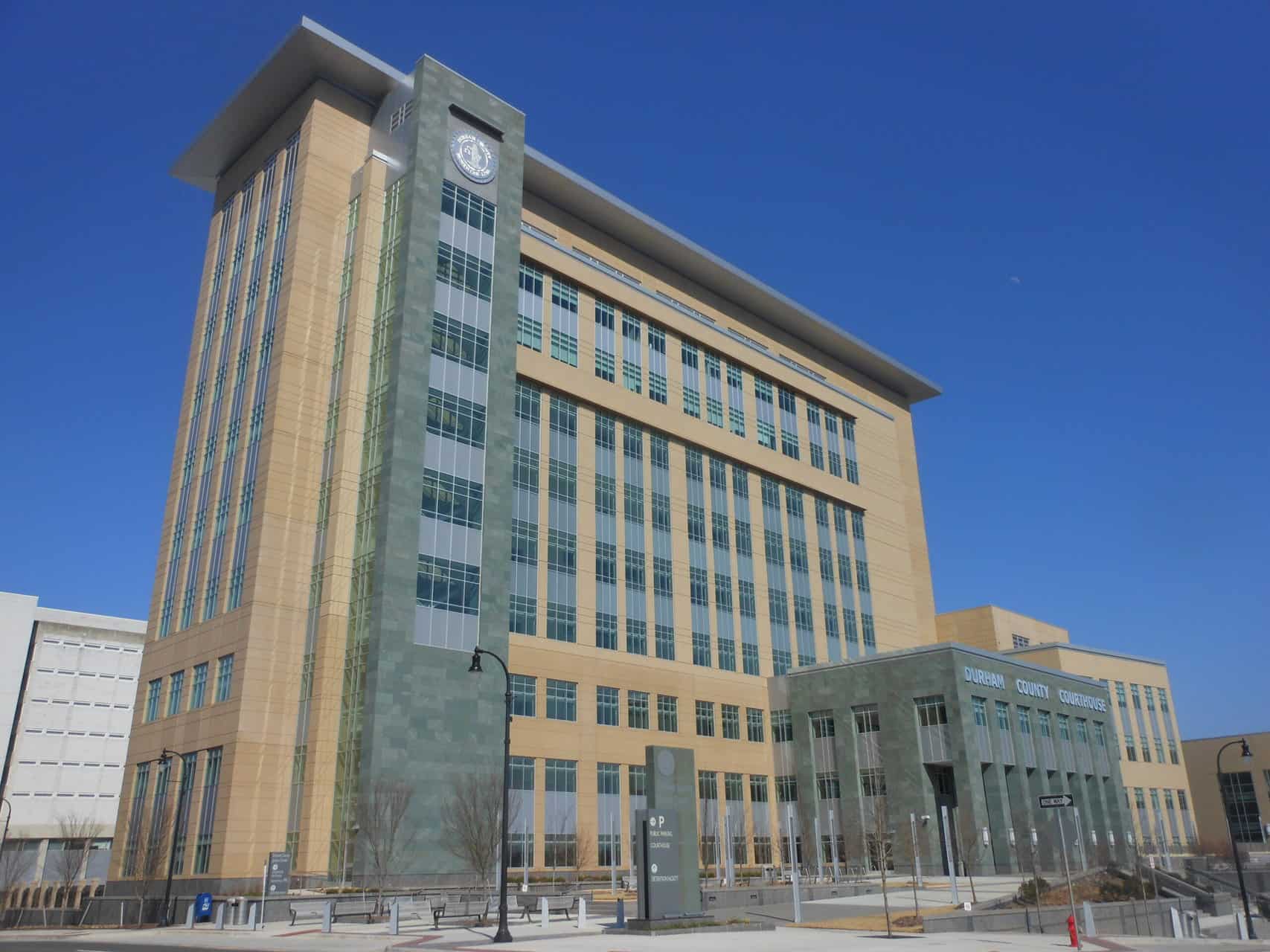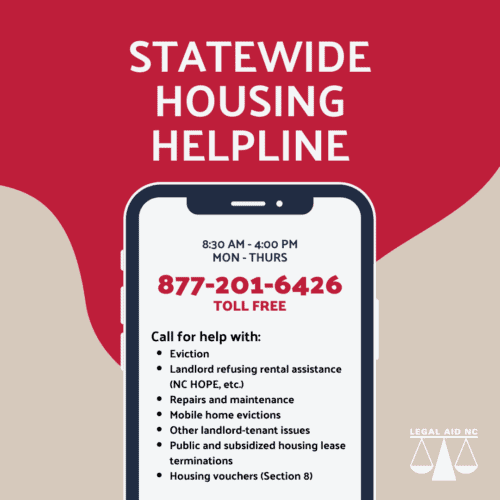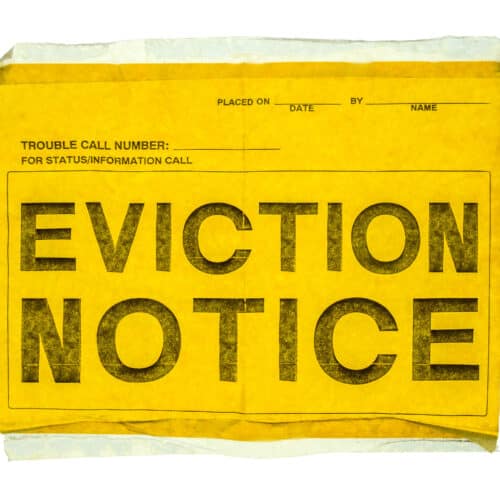Topic: Housing
Topic: Housing
Topic: Housing
About
The Fair Housing Project of Legal Aid of North Carolina works to eliminate housing discrimination and to ensure equal housing opportunity for all people in North Carolina through education, outreach, public policy initiatives, advocacy and enforcement.
Visit the FairHousingNC.org website to learn more.
News
Wilmington housing complex settles criminal-record discrimination case
RALEIGH—Legal Aid of North Carolina announced today that it has settled a housing discrimination complaint…

Legal Aid team honored for racial justice and health equity work in Rocky Mount

High court win for Legal Aid client to benefit all NC public housing tenants
"The Color of Law" author, Richard Rothstein, to give public lecture to raise funds for tenants facing eviction
DURHAM—Richard Rothstein, the acclaimed author of The Color of Law (2017), will give a free…
Housing discrimination case in Greenville continues after one defendant sentenced to 28 months in federal prison for racial harassment
RALEIGH—Douglas Matthew Gurkins, 34, a Greenville resident, has been sentenced to 28 months in federal…
Builders, architects, owners of 5 NC housing complexes settle discrimination cases
RALEIGH · Legal Aid of North Carolina (LANC) announced today that it has settled housing discrimination complaints…
Fair Housing Project celebrates its 6th year, $5.25 million won for victims of housing discrimination
RALEIGH, April 28, 2017 – When fair housing advocates gather for Raleigh’s 14th Annual Fair…
Fidelity Bank settles fair housing complaint for $1M
RALEIGH, April 22, 2016 – The U.S. Department of Housing and Urban Development today announced a…
Wake County settles complaint alleging disability discrimination in housing program
RALEIGH, December 5, 2017 – Legal Aid of North Carolina announced today that it has…
Legal Aid of N.C. and Universal Design Institute help hundreds of families obtain accessibility modifications
RALEIGH · May 15, 2018 – Over 250 low income families with disabilities in four states…
Topic: Housing
The Durham Eviction Diversion Program is a partnership of our Durham office, Duke Law’s Civil Justice Clinic and the Durham Department of Social Services. The program uses tenant education, legal advocacy and rental assistance to prevent evictions and increase housing security for low-income renters in Durham County.
Durham Courthouse Clinic
Free Eviction Advice for Qualifying Tenants
Are you a Durham resident undergoing an eviction? Come to Legal Aid’s courthouse clinic to get connected with a free attorney.

Clinic Hours
Open Monday – Friday 9AM-12PM
3rd floor, Room 3200
Please Bring
- Your court papers
- Lease
- Ledger
Contact Us
If you are an agency seeking to refer a community member facing eviction or housing insecurity, please email us. If you are an individual seeking immediate legal service from a trained professional, please call the number below:
984-212-4404 Open Mon-Fri 9 AM – 2 PM
The Durham Eviction Diversion Program relies on the support of community members committed to housing security. Each year, dozens of volunteers and interns commit hundreds of hours to helping our neighbors stayed securely housed.
Volunteering could be downloading and distributing our fliers below to your communities. It could also mean working shoulder-to-shoulder with our staff on some of the following tasks: developing K-12 curricula; researching local and state policies; facilitating community relationships; working one-on-one with clients; and building websites like this.
Interested in volunteering or interning to ensure that all people have a place to call home?
Reach us by email at durhamhousingteam@legalaidnc.org or by phone at (984) 297-2016
Durham Evictions Mapping Project
The Durham Evictions Mapping Project tells the story of housing insecurity and eviction in Durham during the COVID-19 pandemic as experienced by clients of the Durham Eviction Diversion Program.
Click here to be taken to the full website for the Durham Evictions Mapping Project.
History of Settlement and Housing in Durham
The COVID-19 pandemic has exacerbated the eviction crisis in Durham. Housing insecurity has long riddled the city. Read about the connections between past and present history of housing in Durham.
Download our Materials
Our Clients
Ms. Smith
“[When COVID-19 restrictions] were starting to be lifted to the point at which landlords can take people to court….I was able to talk to someone [at the Durham Eviction Diversion Program]…to get a few guidelines of what I could do or who I could turn to with this situation.”
Ms. Gonzalez
The Durham Eviction Diversion Program “prevented me from being evicted and made it possible for me to pay my rent and be able still to do the things I needed to do for my children and pay the rest of my bills, so it was very helpful. I’m very appreciative…
A lovely woman at Legal Aid was very good too– she was on top of everything, she was easy to work with, she was efficient, it was all around good experience.”
Mr. Brown
“If it was not for [the Durham Eviction Diversion Program] me and my children would probably not have anywhere to stay… I’ve just never seen a program move as fast as this program has…I’m just really grateful for it.”
Our Community Partners
Walk in Ministry
“We have collaborated with Legal Aid throughout the pandemic. Our Walk In Ministry financially serves some of the most vulnerable individuals in the community and Legal Aid has provided the legal protection that has kept many of these individuals and families from becoming homeless. Legal Aid has been responsive to our referrals, has followed through with services, and has treated clients with respect.”
Duke Memorial UMC
” Duke Memorial United Methodist Church was excited to join with Legal Aid just a year ago to assist our neighbors’ housing needs. Our congregation’s Good Samaritan Fund is operated by volunteers who respond to requests once a month so we recognize we do not have the resources to assist the huge need in our neighborhood. Legal Aid Eviction Diversion Program has a working relationship with clients which means they know the areas of greatest need and where our funds will have the greatest impact. In the past six months we have helped 9 households with an average of $250 per household. We are thankful for this partnership.”
Durham Congregations in Action
“Durham Congregations In Action has supported the work of Legal Aid for the past four years. Their work on eviction prevention has been an essential resource for our network of faith-communities and nonprofit partners. We’ve relied on Legal Aid’s analysis for educating faith-community leaders and identifying action steps to assist people in housing crisis. Legal Aid’s partnership has provided housing advocates and faith-communities involved in homelessness intervention an additional avenue for keeping people housed.”
News

Our new statewide Housing Helpline streamlines access to free legal aid for tenants
"Waste" author Flowers to give free lecture on housing and environmental injustice
DURHAM—Environmental justice advocate, MacArthur “Genius” Fellow and author of Waste: One woman’s fight against America’s…
We're suing top NC court officials to demand compliance with CDC eviction moratorium, Governor's order
RALEIGH—Legal Aid of North Carolina is suing state and county court officials to stop the…
Legal Aid NC gets $300k from Wells Fargo Foundation to keep renters in their homes
RALEIGH—Up to 40 million U.S. renters may face eviction by the end of the year…
Wells Fargo funding will help fight COVID-related eviction
RALEIGH—The Wells Fargo Foundation announced on September 24 that it had donated $5.4 million to…

Nellie Kearney series

Are you being evicted?
Time Out Communities creating eviction crisis in Robeson County
Legal Aid clients threatened with eviction after appearing in exposé about skyrocketing rents in mobile…
Topic: Housing
At the moment, we are not running live Tenant Rights Clinics. You can check out our most recent recordings here.
Affirmative Case for Repairs Forms
Topic: Housing
RALEIGH – Global law firm Baker McKenzie, in partnership with Legal Aid of North Carolina and Bank of America, is pleased to announce the publication of the North Carolina Homeless Youth Handbook, an online resource designed to empower young people to understand their legal rights and take action to build safe, stable futures with North Carolina-specific information.
Nearly 500 unaccompanied youth were identified as living on their own and without consistent access to shelter in North Carolina in 2020. In North Carolina schools, nearly 35,000 students are estimated to be experiencing some form of homelessness, and their struggles have been worsened by the COVID-19 pandemic.
The Handbook is an online resource written in plain-language and in a youth-friendly question-and-answer format to ensure young people can use it themselves. The resource will be shared with schools, libraries, public agencies, social advocates, and others throughout North Carolina.
“Homeless children are among the most vulnerable members of our society,” said Hope Williams, an attorney with Legal Aid of North Carolina. “It is critical that those who have the ability to help these children do everything they can to educate them about their rights and connect them to resources that can help stabilize their lives. The Homeless Youth Handbook is a powerful tool for homeless children and their advocates, and we at Legal Aid are proud to have contributed to its development.”
About 75 volunteers donated more than 1,000 hours of pro bono effort to research, write, and edit the handbook, which covers topics including education, domestic and dating violence, healthcare, and more. Organizations that supported the effort include Bank of America, ACLU of North Carolina, Disability Rights North Carolina, North Carolina Office of the Juvenile Defender, Wake County Public Defender’s Office, Equality North Carolina, and the North Carolina Guardian ad Litem Program.
Baker McKenzie has partnered with other organizations to produce 11 handbooks in 10 states and Washington D.C. Learn more here.
“Housing is the most basic structural need for everyday life, and the lack of a stable home fuels many social and economic challenges that our communities face. We welcome the opportunity to work with our organizational partners to release The Homeless Youth Handbook. This project demonstrates how collaboration among in-house counsel, non-profits and law firms can exponentially increase assistance to those in need, particularly the most vulnerable among us during the COVID-19 pandemic,” said Colin Murray, North America Chief Executive Officer at Baker McKenzie.
“Through partnerships like this, we provide youth in the US, and their advocates, with clear guidance on young people’s legal rights,” added Jaclyn Pampel, Baker McKenzie Pro Bono Partner and one of the leads of this effort. “Thank you to the talented teams at Legal Aid of North Carolina and Bank of America, and to all of our supporting partners, for their collaboration on this important project.”
###
About Baker McKenzie
Baker McKenzie helps clients overcome the challenges of competing in the global economy. We solve complex legal problems across borders and practice areas. Our unique culture, developed over 70 years, enables our 13,000 people to understand local markets and navigate multiple jurisdictions, working together as trusted colleagues and friends to instill confidence in our clients. (www.bakermckenzie.com)
About Legal Aid of North Carolina
Legal Aid of North Carolina is a statewide, nonprofit law firm that provides free legal services in civil matters to low-income people in order to ensure equal access to justice and to remove legal barriers to economic opportunity. Learn more at legalaidnc.org. Follow us on Facebook, Twitter, Instagram, LinkedIn and YouTube. Need legal help? Call 1-866-219-5262 (toll-free) or apply online.
Topic: Housing
On this episode of Housing on Monday Evening (HOME), Laura Hogshead, Director of Recovery and Resiliency in the N.C. Department of Public Safety, joins us to talk about our new 88-county Eviction Diversion Program, which fights to keep struggling renters in their homes during the COVID-related eviction crisis. The new program is a partnership with NC HOPE, part of the N.C. Office of Recovery and Resiliency, which distributes rental and utility assistance to North Carolinians in 88 counties. Learn how our Eviction Diversion Program and NC HOPE are working together to keep renters safe and sound across the state. #NCORR
Topic: Housing
RALEIGH — Tenants in North Carolina who are facing eviction or struggling with other housing issues have a new, easier way to get free legal help.
As of yesterday, North Carolinians in all 100 counties can call 1-877-201-6426 (toll-free) to connect directly to our newly expanded team of housing lawyers, paralegals and outreach workers. The Housing Helpline is open Monday through Thursday from 8:30 a.m. to 4:00 p.m.
“Tenants facing eviction or struggling with other housing problems no longer have to call our general Helpline, which has been overwhelmed with callers since the start of the pandemic,” said Scheree M. Gilchrist, managing attorney of our Central Intake Unit, which runs the helplines.
“Our new Housing Helpline allows tenants to bypass the general queue, avoid long hold times and quickly reach our housing specialists,” Gilchrist said. “We are in the middle of an eviction crisis and evictions move fast in North Carolina. We don’t want families being put out on the street because they couldn’t reach us in time.”
While we are launching the Housing Helpline largely in response to the COVID-related eviction crisis, the helpline is available to tenants with any housing issue, including problems with repairs and maintenance, housing vouchers, public housing, mobile homes, rental assistance programs and other issues.
The Housing Helpline is part of our new 88-county eviction diversion program, which boosts services to residents of traditionally underserved, largely rural counties in our state. The new program serves the same 88 counties covered by the North Carolina Housing Opportunities and Prevention of Evictions (HOPE) Program, which provides rent and utility assistance to struggling tenants.
While we have always handled eviction cases in these 88 counties, new funding from the North Carolina Office of Recovery and Resiliency has allowed us to increase our services in these areas. With the new funding, we have hired more lawyers, paralegals and outreach workers to provide more holistic services to tenants. In addition to the core legal services we have always provided—legal advice and representation—the new program allows us to dedicate more resources to negotiating with landlords and helping tenants resolve any barriers to receiving rental assistance from HOPE and other programs.
A partnership with the HOPE Program is an integral part of our new eviction diversion effort. We will receive referrals directly from HOPE, educate tenants and landlords about how the program works, negotiate with landlords who do not want to accept HOPE funds, and represent tenants in court when the landlord chooses to pursue an eviction rather than accept the HOPE funds or after accepting rental assistance.
“We are excited about this partnership with HOPE,” Peter Gilbert, the head of the new eviction diversion program, said. “Legal assistance and rental assistance are both often necessary to keeping people in their homes. By working together, Legal Aid NC and HOPE can make sure that all the necessary elements come together to prevent eviction and keep families off the street.”
# # #
About
Legal Aid of North Carolina is a statewide, nonprofit law firm that provides free legal services in civil matters to low-income people in order to ensure equal access to justice and to remove legal barriers to economic opportunity. Learn more at legalaidnc.org. Follow us on Facebook, Twitter, Instagram, LinkedIn and YouTube. Need legal help? Call 1-866-219-5262 (toll-free) or apply online.
Media contact
Sean Driscoll, Director of Public Relations, 919-856-2132, seand@legalaidnc.org
Topic: Housing
Isaac Sturgill, head of our housing practice group, gives you step-by-step instructions for appealing an eviction judgment in North Carolina.
Topic: Housing
Isaac Sturgill, head of Legal Aid of North Carolina’s housing practice group, gives an update on the new CDC eviction moratorium and answers questions.





